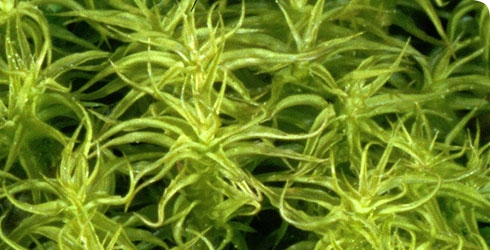Pleurochaete squarrosa
Pleurochaete squarrosa is a thermophilous, sub-mediterranean moss that is becoming more frequently found in central and northwestern Europe as a result of global warming.
Monitoring the expansion of Pleurochaete squarrosa range could deliver valuable insights in plants' response to climate change.
Species detail
It currently comprises four recognized species; two of them being very doubtful.
According to molecular phylogenetic research conducted at the Natural History Museum, the genus is divided into three lineages of equal rank (P. luteola; Old World P. squarrosa; and New World P. squarrosa). The genus is distributed across Mediterranean climate zones mainly in the northern hemisphere.
The European populations of P. squarrosa are currently spreading in north-western and central Europe, probably in consequence of climate change. Monitoring range expansions of these bryophytes could deliver valuable insights in plants' response to global warming.
Tracking population history of Pleurochaete squarrosa is eased in the northern part of its range due to entirely clonal propagation and a very limited number of genotypes.
-

Taxonomy
Find out more about the appearance of Pleurochaete squarrosa as well as the features that distinguish it from and are similar to other species in its genus.
-

Distribution and habitat
Discover where you can find this widely distributed species and the range of habitats it is commonly found in.
-

Conservation
Learn about the conservation status of Pleurochaete squarrosa and the types of climate it is characteristic of in the areas it grows.
-

Reproduction and dispersal
Read about the reproductive processes of Pleurochaete squarrosa and find out how the species is dispersed.
-

References
Get reference material for Pleurochaete squarrosa.
Images
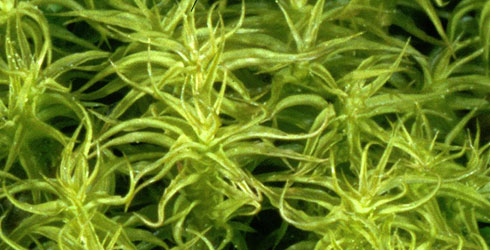
A small cushion of Pleurochaete squarrosa.
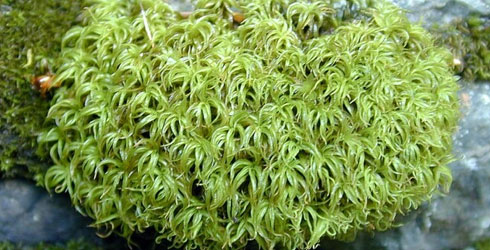
Tortella tortuosa, the most common species of the genus in Europe.

Tortella inclinata can easily be mistaken for Pleurochaete by the untrained eye.

Pleurochaete squarrosa provides a substrate for flowering plants on a boulder.
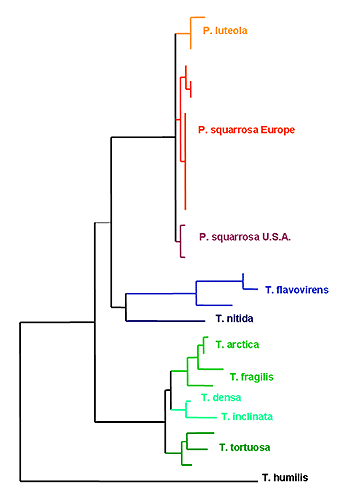
Phylogeny of Pleurochaete and some species of Tortella.
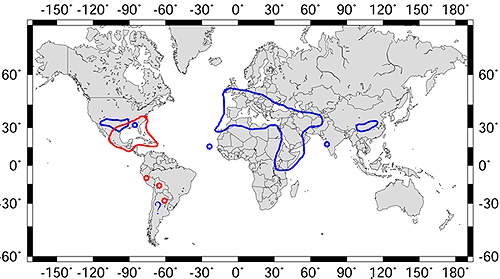
Worldwide ranges of P. squarrosa (blue) and P. luteola (red).
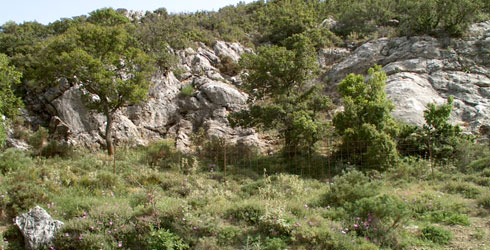
A typical habitat of Pleurochaete on Crete.
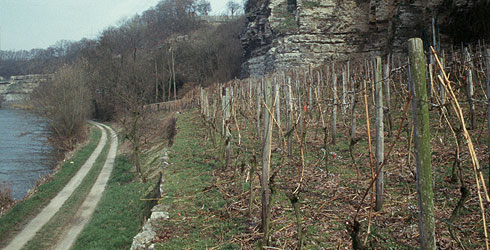
A man-made habitat: A vineyard in the Neckar valley, SW-Germany.
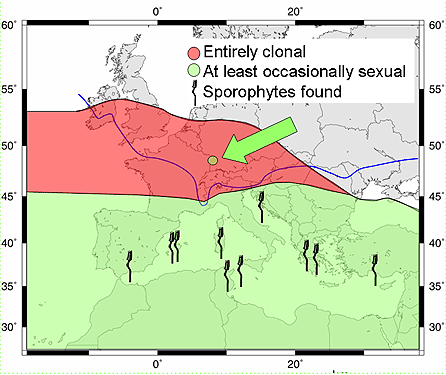
The Kaiserstuhl mountains harbour (green arrow) the only fertile populations north of the 45th degree of latitude. The blue line indicates the maximum glaciation during the last ice age.
Author
Dr Michael Grundmann,
Curator of Molecular Collections,
Department of Botany.
